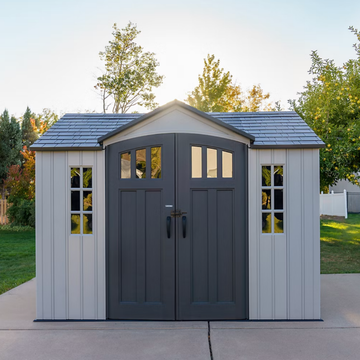1Actually
 Good Housekeeping
Good HousekeepingPeople tend to use actually to stress their opinion as in "Never Been Kissed is actually the best rom-com ever made." But it should be used to express a fact that's surprising or unexpected.
RELATED: The 50 Best Romantic Comedies of All Time
2Adverse
 Good Housekeeping
Good HousekeepingThe common mix up is interchanging "adverse" and "averse." Adverse is used to describe something bad or harmful like an "adverse reaction." Without that d, the word means against.
Advertisement - Continue Reading Below
3Cliché
 Good Housekeeping
Good HousekeepingCliché is often used as adjective, which is incorrect. A person, place, or thing can't be described as cliché because it's actually a noun.
4Complement
 Good Housekeeping
Good Housekeeping Advertisement - Continue Reading Below
5Decimate
 Good Housekeeping
Good HousekeepingYou've probably heard decimate used in the context of something getting destroyed. Put that out of your mind. The true definition is to reduce something by one tenth.
6Disinterested
 Good Housekeeping
Good HousekeepingTelling someone you're disinterested doesn't mean you don't care. In that case, you'd say uninterested. Disinterested means you don't have a stake or claim in the matter at all.
Advertisement - Continue Reading Below
7Effect
 Good Housekeeping
Good Housekeeping 8Enormity
 Good Housekeeping
Good HousekeepingEnormity doesn't mean huge or enormous. It means extremely evil.
Advertisement - Continue Reading Below
9Except
 Good Housekeeping
Good HousekeepingExcept and accept are often switched up. With an ex the word means excluding.
10Farther
 Good Housekeeping
Good HousekeepingFarther and further is tricky. Further is used to convey a degree of an action or a situation, whereas farther is used in relation to distance. You travel farther, but you have nothing further to discuss.
Advertisement - Continue Reading Below
11Fewer
 Good Housekeeping
Good HousekeepingThis one might be the most confusing of the bunch. The difference between fewer and less is that fewer should refer to individual items (like fewer shirts in a drawer). Less is used to describe the amount or volume of something.
12Hone
 Good Housekeeping
Good HousekeepingYou've probably heard or used the expression hone in to mean getting to the point of an argument or finding a location. That's incorrect. Hone means to sharpen.
Advertisement - Continue Reading Below
13Hung
 Good Housekeeping
Good Housekeeping 14Inflammable
 Good Housekeeping
Good HousekeepingInflammable doesn't mean something is not flammable. It's a synonym for flammable meaning easily set on fire.
Advertisement - Continue Reading Below
15Literally
 Good Housekeeping
Good Housekeeping 16Nauseous
 Good Housekeeping
Good HousekeepingIf you're experiencing nausea, you're nauseated. If you're nauseous, it means you cause nausea.
Advertisement - Continue Reading Below
17Principle
 Good Housekeeping
Good HousekeepingWith a ple ending, it means a rule. Principal refers to someone of the highest authority in a group or an original sum of money.
18Tortuous
 Good Housekeeping
Good HousekeepingTortuous has nothing to do with torture. It refers to something that is extremely long and complex.
Advertisement - Continue Reading Below
19Travesty
 Good Housekeeping
Good HousekeepingA travesty is not a tragedy. It's a fake or poor imitation.
20Verbal
 Good Housekeeping
Good Housekeeping 
Adam is an NYC-based writer who has covered everything from men's fashion to video games and travel. He loves any opportunity to write about pop culture or essays inspired by his personal life.
Advertisement - Continue Reading Below
Advertisement - Continue Reading Below
Advertisement - Continue Reading Below


































